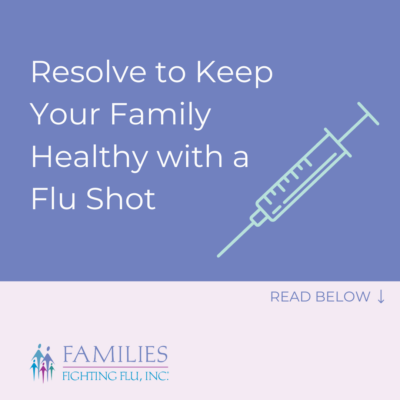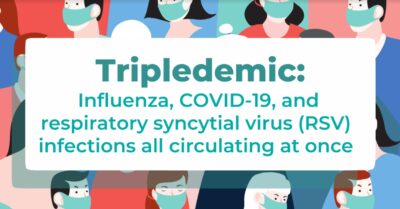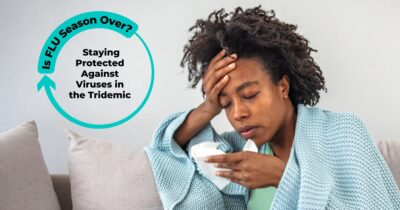
- Flu News & Surveillance
Tips to Keep Kids Healthy During the Tripledemic

According to a recent article from Yale Medicine, FLU and RSV are on the decline (but COVID-19 is once again on the rise) however, we are still in the midst of a ‘Tripledemic’ with respiratory viruses hitting hard. How do we keep our children healthy, even If it feels like everyone around us is sick? This post will try and help to navigate the challenges and downright scariness of the ‘Tripledemic’ and what to do to keep kids healthy this spring.
Let’s start with the basics. The ‘Tripledemic’ is influenza, COVID-19, and respiratory syncytial virus (RSV) infections. Because of the precautions taken during the height of the COVID-19 pandemic (masking, social distancing, etc.), there was less of a risk of contracting these illnesses. With those precautions lifted and people going about their everyday lives, we saw the surge happen, especially in schools and daycare centers. Children became the most vulnerable (as well as those who are immunocompromised) to contracting these viruses.
In this article, assistant professor of pediatrics at Columbia University Vagelos College of Physicians and Surgeons Rachel Lewis, MD, says, “Because of the COVID pandemic, these kids may have never been exposed to the viruses most kids see multiple times by the time they’re 3 or 4. Now that they’re finally getting sick, their immune responses can be really exaggerated.”
Since many of these viruses have similar symptoms, here are some ways to understand what your child may be sick with and how to treat or prevent illness.
- Get Vaccinated – First and foremost, get the FLU vaccine and the COVID-19 vaccine/booster. This is the most effective way to prevent serious illness and hospitalization. Since the virus and the vaccine change every year, it is important to get a flu vaccination annually. And when you get vaccinated yearly, you’re less likely to suffer from the flu and reduce your risk of hospitalization and death. Everyone 6 months and older should get an annual flu vaccine.
- Keep Germs Away – Keep your hands washed (and keep hand sanitizer with you in case hand-washing isn’t possible). Wear a mask if you are around anyone who is sick (and also if you start to feel symptomatic). Cover coughs and sneezes with an elbow or tissue (not hands). Teaching children these valuable tips will help decrease the chances of contracting virus-carrying germs.
- Get Tested – If your child shows symptoms of any of these viruses, ask your healthcare provider to test for FLU, COVID-19, and RSV. Testing is the only way to know for certain what illness your child may be sick with and allows your healthcare provider to give them the best treatment.
All of these viruses can be very dangerous, especially the flu. Children younger than 5 years old–especially those younger than 2–are at higher risk of developing serious flu-related complications. Approximately 20,000 children under the age of 5 are hospitalized each year from the flu, and over 2,000 children have lost their lives to the flu since 2004. By taking simple steps to protect children, we can help reduce the amount who may become ill with the flu or any of the illnesses that create the Tripledemic.


